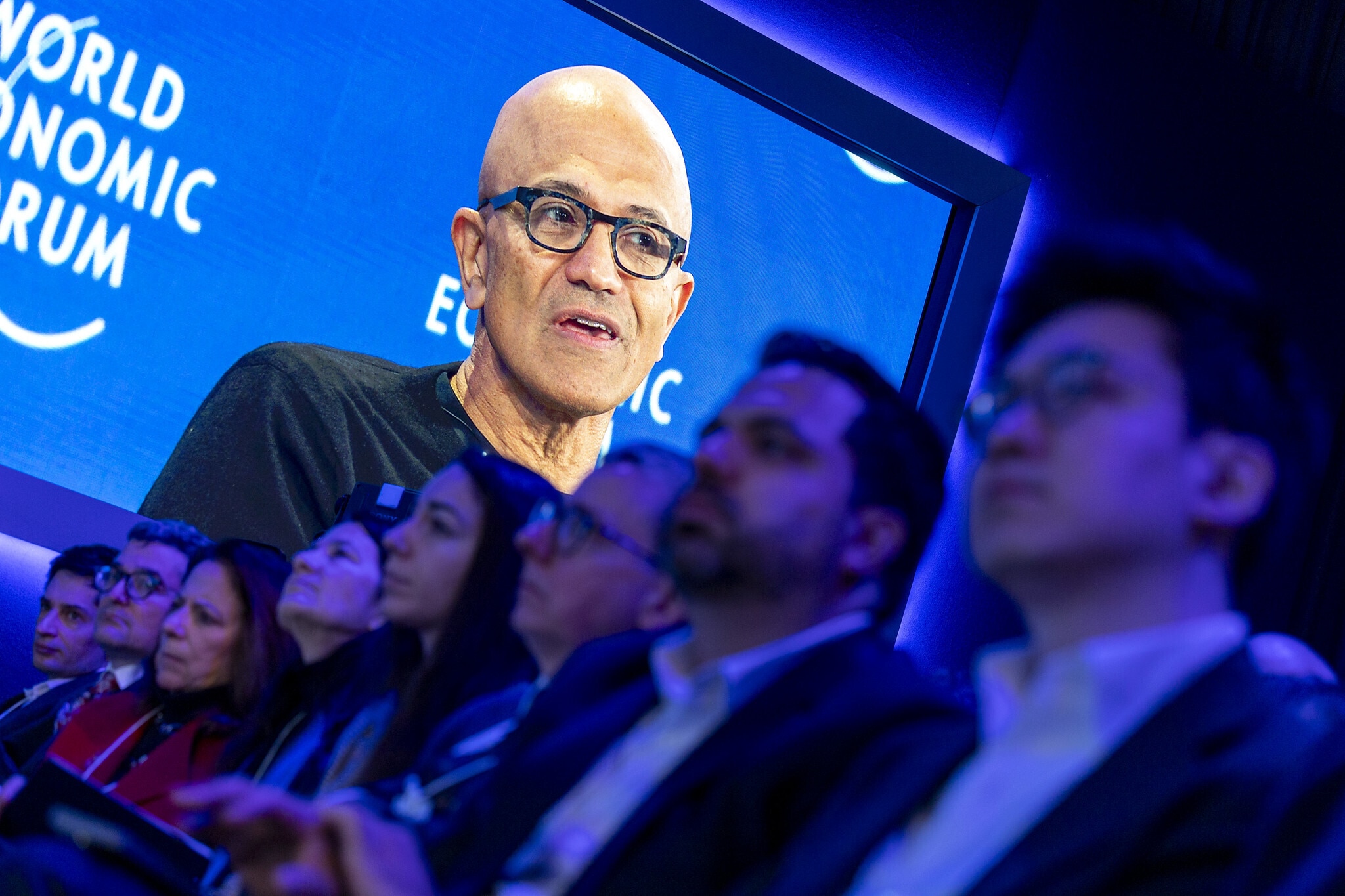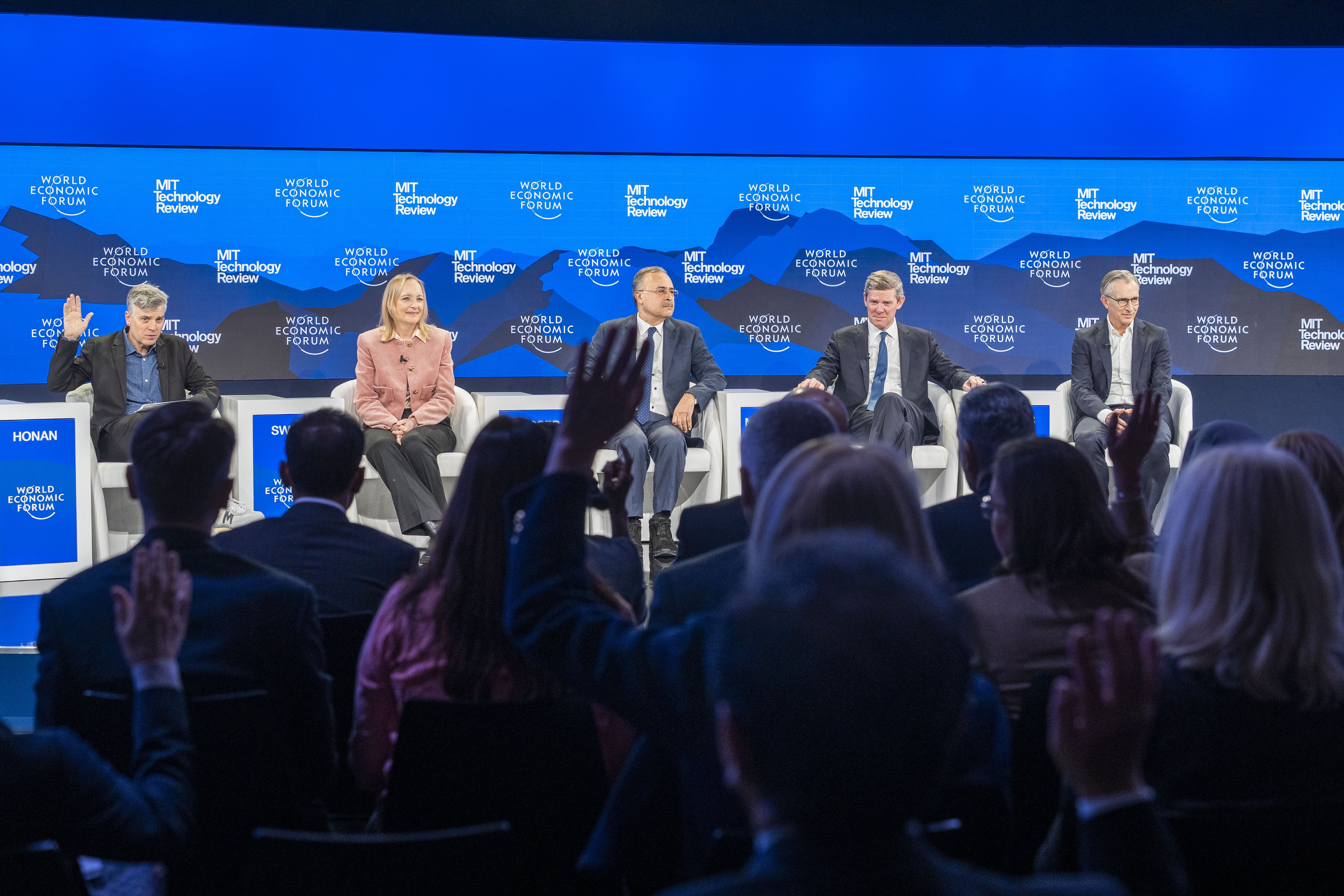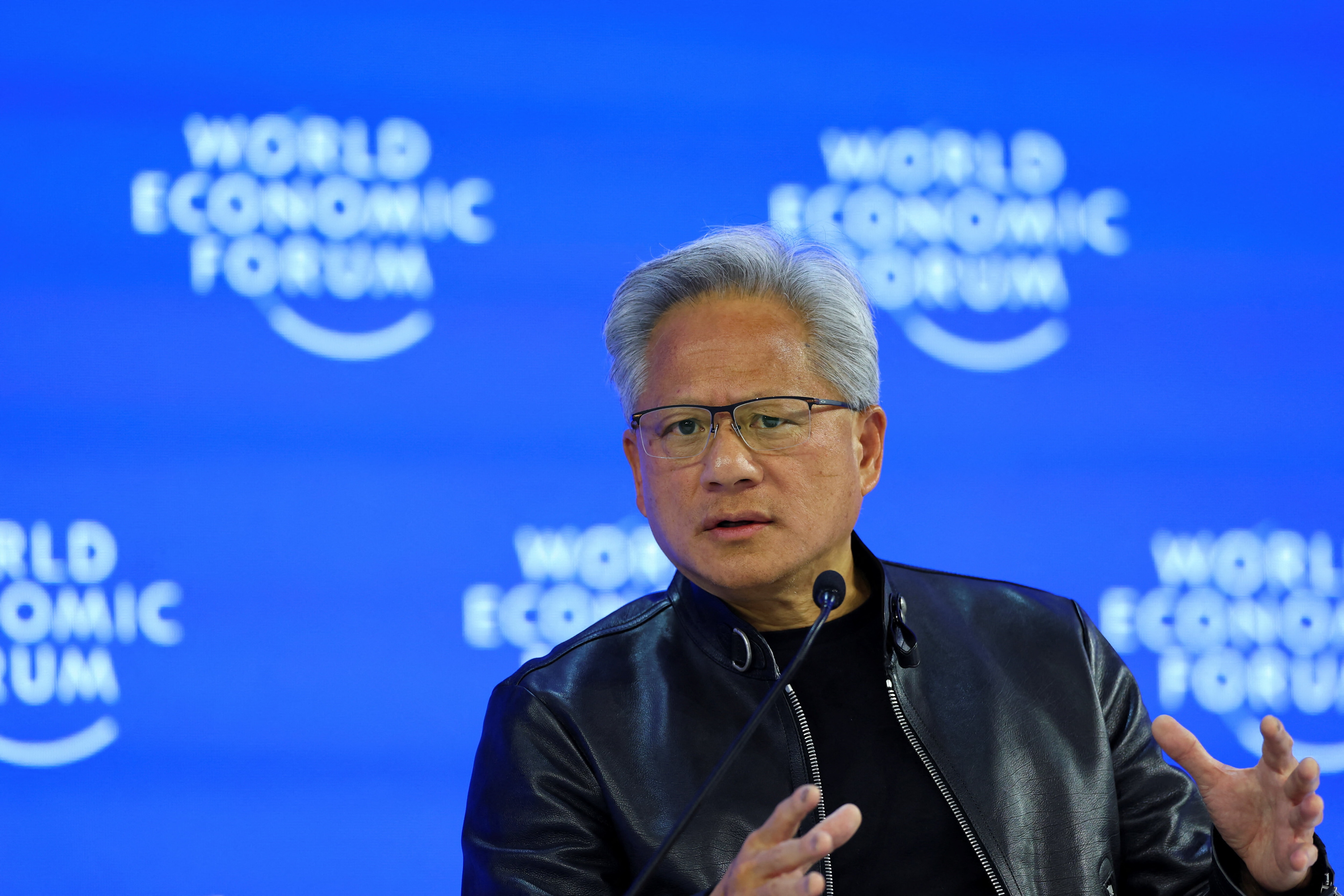5 innovations disrupting industries in the GCC

Fast-moving developments in geopolitics and technology are reshaping the engines of global economic growth. Image: EDB Bahrain
Noor Ali Alkhulaif
Minister of Sustainable Development of Bahrain, Chief Executive, Bahrain Economic Development Board- Entrepreneurial thinking is crucial at a time when fast-moving developments in geopolitics and technology are reshaping the engines of global economic growth.
- With its strategic location, young population and pro-innovation policies, the Gulf Cooperation Council (GCC) region is well-positioned for this challenging and promising new era.
- These five disruptive trends are powering the GCC’s innovation-driven industries and offer insights for the future direction of the global economy.
From the Silk Road to Starlink, entrepreneurship has always been a driving force for change. Under the theme Entrepreneurship for a New Era, the World Economic Forum’s forthcoming 16th Annual Meeting of the New Champions in Tianjin, China, underlines this enduring importance of entrepreneurial thinking at a time when fast-moving developments in geopolitics and technology are reshaping the engines of global economic growth.
The Gulf Cooperation Council (GCC) region is well-positioned for this challenging, yet immensely promising, new era. Its strategic location, young population and pro-innovation policies allow it to lay the foundations for next-generation economies. Indeed, entrepreneurship in the GCC underpins its deeply ambitious economic vision for diversification, digital transformation and sustainable growth. The World Bank expects the GCC region to grow at 4% in 2026, exceeding the projected 3% growth for the world as a whole.
Within this broad trajectory, five disruptive trends are powering the GCC’s innovation-driven industries and offering insights for the future direction of the global economy.
1. Next-chapter friendshoring
Among the most transformative trends being championed in the Middle East is friendshoring – prioritizing trade relationships with partners that command trust. The GCC, and particularly Bahrain, is ready to capitalize on its existing strategic partnerships and economic ties, given its central geographic location, strong soft and hard infrastructure for trade, and reputation for stability and neutrality.
Continuing uncertainty over the future of global trade patterns points to further potential for this trend, which has already opened up new possibilities for foreign direct investment in diverse sectors. For example, US-based global snack manufacturer, Mondelēz, selected Bahrain, a trusted partner with strong bilateral ties to the United States, as the location for its ‘Factory of the Future’, producing well-known brands, such as Oreo cookies, Kraft cheese and Tang drinks, to serve the region and beyond.
In other exciting developments, leading Chinese manufacturer, Lenovo, has set up a factory in Riyadh, while US tech giants OpenAI, Oracle and Nvidia have invested with a local partner to create a major new computing cluster in Abu Dhabi.
2. AI-powered entrepreneurship
The second disruptive trend is AI and automation, where countries in the GCC region are proactively embracing emerging technologies and the potential of the AI revolution to boost entrepreneurship. Government policy and private sector dynamism can work in tandem to support this trend, as demonstrated by Saudi Arabia’s National Strategy for Data and AI, which has set a target of creating over 300 startups using AI.
Education and training are central to this transformation. The UAE has recently made AI a mandatory subject in government schools, while Bahrain is seeing an impact from early investment in STEM education, with research from the Kingdom’s Higher Education Council showing that 38% of university student enrollments were in STEM programmes. Meanwhile, the Labour Fund, Tamkeen, is driving an initiative to train 50,000 Bahrainis in AI by 2030.
In 2024, Saudi Arabia hosted the Global AI Summit and the annual meeting of the Future Investment Initiative, a powerful illustration of the region’s growing centrality to emerging global trends in cutting-edge technology.
Bahrain-based companies in sectors such as manufacturing are making use of digital twinning technology, which involves using AI to create virtual replicas of physical assets to optimize their use. Elsewhere in the region, automation is also transforming transportation networks: the Middle East’s first drone-delivery system debuted in Dubai at the end of 2024, while Abu Dhabi is pioneering driverless vehicles and robotaxis to create a smarter mobility ecosystem.
3. The Gulf as a green tech powerhouse
Green tech is the third notable trend powering entrepreneurship, sustainability and resilience in the region. The GCC is investing $100 billion in renewable energy, aiming to achieve a 20% reduction in emissions by 2030, recognizing both the need to mitigate climate change and the business opportunity associated with green technologies. Furthermore, GCC countries are working together to harmonize regional standards on renewable energy technology by developing joint training programmes and technical committees to align with international benchmarks.
In Bahrain, a national action plan to achieve carbon-neutrality by 2060 focuses on three key, connected areas: a low-carbon economy, climate change adaptation and creating investment opportunities in the new green economy. The green transition represents an immediate and immense opportunity for entrepreneurship and the introduction of new technologies. The UAE’s development of the region’s second next-gen nuclear reactor, for example, highlights how traditional energy sectors are evolving, with AI playing a growing role in optimizing performance.
Additionally, with its supply of solar energy and natural gas, the region is well placed to be a global leader in green and blue hydrogen – and countries in the GCC are coming together to make this happen. Green technology extends beyond energy to agriculture, with innovations helping to ensure the food of the future will put less strain on land and water. Bahrain’s King Hamad Award for Agricultural Development encourages agricultural innovation, while Saudi Arabia has recently built the tallest vertical farm in the MENA region, with a 15-metre-high, advanced-tech structure providing a total growing area of 20,000 square metres.
4. Leading on intelligent health
The fourth trend is intelligent healthcare, where developments include AI-powered diagnostics, automation, telehealth and genomics to elevate national health and wellbeing.
GCC countries are at the heart of these trends. Bahrain stood out as the first in the region to use robotic nurses as part of its response to the COVID-19 pandemic and the Kingdom’s commitment to healthcare innovation has continued through its new King Hamad American Mission Hospital, which is built around digital medicine and AI. While its National Genome Project uses the latest sequencing technology to explore personalized medicine. Meanwhile, Saudi Arabia is pioneering new cancer treatments that involve genetically modifying a patient’s cells, as well as leveraging AI to design a new early detection system for diabetes.
The UAE is also making strides in this sector. The Abu Dhabi-based tech group G42 and Cleveland Clinic recently announced a joint task force to accelerate initiatives that prioritize AI adoption in healthcare.
5. From the sandbox to the stars: Fintech and digital assets
Fintech and digital assets represent the fifth and final trend. The GCC region is a global leader in reinventing finance through technology, with a high public appetite for innovative solutions and supportive regulations. Bahrain has established itself as a fintech hub, thanks to a series of the region’s first government initiatives in open banking rules, supportive regulations for cryptocurrency and an onshore regulatory sandbox to enable innovations to be safely tested and rolled out to the wider MENA market. Bahrain led the way as the first country in the region to give an operating license to crypto-asset service provider Binance, and, in 2024, crypto.com partnered with Mastercard to launch a prepaid card in Bahrain, facilitating the spending of crypto assets globally.
Abu Dhabi Global Market is another leading finance hub, which is strengthening fintech innovations in the region through a range of partnerships – including with Bahrain’s FinTech Bay. The Qatar Financial Center hosts home-grown fintech startups, which, in turn, are boosting entrepreneurship by making it easier for SMEs to access finance. Fintech innovations are becoming widely accepted across the economy, as exemplified by developers of luxury real estate in Dubai increasingly accepting payment in cryptocurrency.
As these trends illustrate, GCC nations are rapidly adopting and pioneering game-changing technologies, from fintech innovation to exploring outer space. In 2025, Bahrain and the UAE became the first countries in the region to launch domestically designed and developed satellites – with Bahrain’s Al-Munther becoming the region's first satellite to integrate AI for onboard-image processing.
All these innovations show that entrepreneurship is not just an enabler of economic growth, it is a cornerstone of healthy, dynamic and sustainable societies. The GCC’s success in these areas highlights how the strong collaboration already taking place between governments and the private sector across the GCC will be key to sustaining momentum and unlocking even greater progress.
Don't miss any update on this topic
Create a free account and access your personalized content collection with our latest publications and analyses.
License and Republishing
World Economic Forum articles may be republished in accordance with the Creative Commons Attribution-NonCommercial-NoDerivatives 4.0 International Public License, and in accordance with our Terms of Use.
The views expressed in this article are those of the author alone and not the World Economic Forum.
Forum Stories newsletter
Bringing you weekly curated insights and analysis on the global issues that matter.
More on Emerging TechnologiesSee all
Yousif Yahya and Abir Ibrahim
January 29, 2026





